News
-
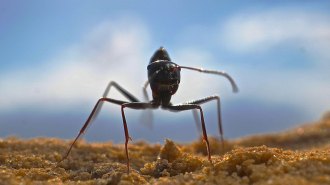 Animals
AnimalsThese ants build tall nest hills to help show the way home
Desert ants living in the harsh, flat salt pans of Tunisia create towering anthills to aid with navigating the near-featureless terrain.
By Soumya Sagar -
 Animals
AnimalsHow a new Lyme vaccine for mice may protect people
A vaccine, distributed as pellets, can neutralize Lyme-causing bacteria in wildlife. Scientists hope it will reduce Lyme exposure for people and pets.
-
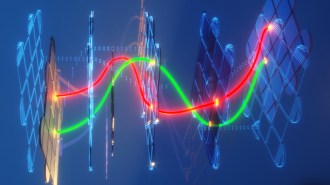 Quantum Physics
Quantum PhysicsQuantum computers braided ‘anyons,’ long-sought quasiparticles with memory
Particle-like quantum states called non-abelian anyons remember being swapped and could be useful for protecting information in quantum computers.
-
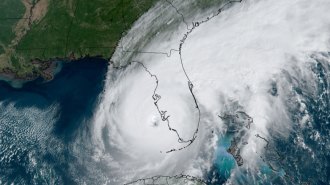 Climate
ClimateWhy the 2023 Atlantic hurricane season is especially hard to predict
It’s hard to know how busy this year’s Atlantic hurricane season will be, thanks to a rarely observed combination of ocean and climate conditions.
-
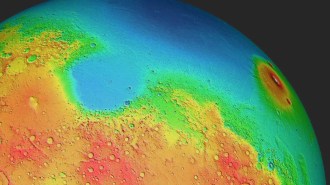 Planetary Science
Planetary ScienceA quake on Mars showed its crust is thicker than Earth’s
Seismic data from NASA’s Insight lander reveal the crust is roughly 50 kilometers thick, with the northern crust being thinner than the south’s.
-
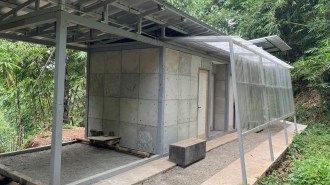 Environment
EnvironmentThis house was built partly from recycled diapers
Disposable diapers can replace nearly a third of the materials used in load-bearing structures, offering a potential path to more affordable housing.
-
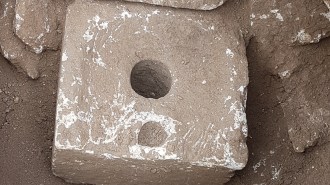 Humans
HumansOldest traces of a dysentery-causing parasite were found in ancient toilets
Scientists have found traces of giardia in two toilets used by wealthy residents of Jerusalem in the 7th and 6th century B.C.
By Freda Kreier -
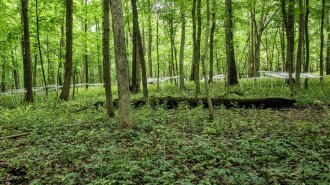 Plants
PlantsSoil microbes that survived tough climates can help young trees do the same
Trees grown in soil with microbes that have survived drought and high or low temperatures have a better shot at survival when facing the same conditions.
-
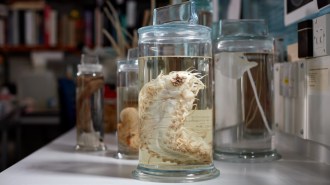 Life
Life5,000 deep-sea animals new to science turned up in ocean records
Scientists compiled a list of animals unknown to science that live in a deep-sea Pacific Ocean ecosystem targeted for mining exploration.
By Jude Coleman -
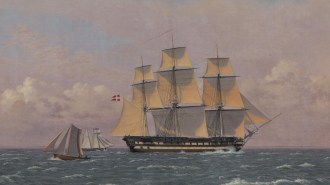 Chemistry
Chemistry19th century painters may have primed their canvases with beer-brewing leftovers
Several paintings from the Danish Golden Age contain remnants of brewer’s yeast, barley and other grains commonly used to brew beer.
-
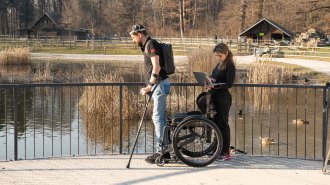 Neuroscience
NeuroscienceA brain implant helped a man with paralysis walk more naturally
A successful test of a system that restores communication between the brain and spine could ultimately help many people with paralysis.
By Simon Makin -
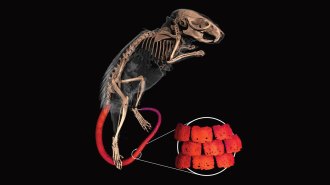 Life
LifeSpiny mice have armadillo-like armor in their tails
CT scans revealed the bony plates in the rodents’ tails. The hidden armor may protect against attacking predators or other spiny mice.
By Jake Buehler